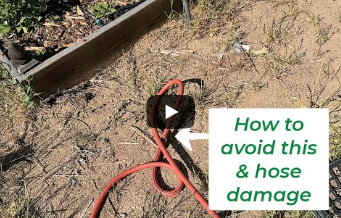Your Raised Bed Questions Answered
Raised bed gardening has become quite popular and there are many benefits to this method of growing plants. You can read all about the benefits in our dedicated post on the topic: The Benefits of Raised Bed Gardening. For ease of access, I thought I would buildout a quick Raised Bed FAQ to answer all your raised bed, raised planter and garden box questions.
-
What soil type should i use in a raised bed garden or planter?
What soil type should i use in a raised bed garden or planter?
Soil for raised beds is a contentious topic among some gardeners. From research, and input from most university agriculture recommendations, you should create a mix that is 25-50% organic matter (fancy term for compost) by volume. Many soil and garden companies make pre-set raised bed mixtures (read expensive), but it's fairly simple to make your own. I always recommend mixing in the top few inches of your own soil to get the criterrs (bugs, bacteria and fungus) that are native to your area. They will help create a sustainable ecosystem in your beds. -
What type of wood should i use for raised bed construction?
What type of wood should i use for raised bed construction?
There are really 3 types of wood recommended for raised beds and planters: douglas fir, redwood/cedar and pressure treated wood. They are essentially listed in the order they will last: douglas fir roughly 2-5 years, redwood/cedar 10-20 years and pressure treated wood 40+ years. For me, I love the way redwood and cedar age, and the fasded grey adds to the beauty of the garden. Also, douglas fir is the cheapest, but you get what you pay for. -
Is pressure treated wood safe for raised beds and vegetable gardening?
Is pressure treated wood safe for raised beds and vegetable gardening?
The short answer is yes, you can use modern pressure treated wood in vegetable gardens. History has given pressure treated wood a bad rap, as it was historically treated with some chemicals (arsenic) that leached into the soil and made it toxic. Today's pressure treated wood is treated with ACQ, which according to the EPA does not contain toxic substances. Long answer - for me, I'd rather go natural, and leverage naturally weather and moisture resistant wood. -
What is the best way to irrigate raised beds?
What is the best way to irrigate raised beds?
Raised beds need quite a bit more water than a regular garden, usually 25% more. Why? Because you essentially have the perfect environment for water absorbtion in the soil: plenty of organic material, uncompressed and with plenty of spaces/voids. Drip irrigation is your best option for watering raised beds. You can use a soaker hose or drip emitters, and we suggest watering less often but deep (longer times). You can read more on drip watering for raised beds at the link below. -
Should I use landscape fabric under my raised beds?
Should I use landscape fabric under my raised beds?
I get this question quite a bit, and I personally don't recommend it. Why? Any barrier between your raised planter and the true soil ecosystem is bad for the long run. You want insects, worms, water, fungus, and bacteria to flow freely and naturally through the little ecosystem you have created. Most weed seeds need warmth, light and water to germinate, so a barrier 12 inches down will provide minimal help. If you are worried about weeds, just put a mulch layer on top, and will help with moisture retention as well. -
What are the benefits of raised bed gardens?
What are the benefits of raised bed gardens?
Control. Raised bed gardening provides you the ability to build and control the environment for growth when it comes to soil, air and water. It is a fresh start that provdes an initial weed free zone, and one that can produce beautiful and healthy plants in short order. -
Should I mulch raised beds?
Should I mulch raised beds?
Absolutely yeas. Raised beds should be mulched for two reasons: water retention and weed control. Raised beds lose water more quicly to evaporation due to the porous nature of the soil composition. Weed control, well, smother those nasties so they don't suck away your garden fun time ;). Mulching provides additiiional benefits - additional organic material. -
How big should I make my raised beds?
How big should I make my raised beds?
In my humble opinion (which is shared by most), a raised bed should be 4'x8'. A 4' width is the perfect size for weeding and planting when it comes to reach. As for length, I choose 8 feet because it is cost effective - I buy 12' long timber lengths so I can get one 8 and 4 lengths from one board. It is also an aesthetically pleasing dimension set (5x7 is the perect dimension according to garden design gurus). -
What is the best way to reinforce the corners of a raised bed?
What is the best way to reinforce the corners of a raised bed?
We use 4x4 posts cut to 12" lengths for reinfocement of the corners. It gives adequate space for multiple screws, and in our experience holds up over time. There are now kits you can buy that have metal galvanized brackets, some with slip channels for your lumber. It is all a matter of preference and what you like aesthetically.
Recent Posts

The Power of Mounding: An Essential Gardening Technique for Healthy Plants

The Ultimate Guide to Philodendron Birkin – Care, Tips, and Benefits

Watering Plants – Indoor Edition

The Advantages of Built-Up Garden Beds: A Gardener’s Best Friend

The Secret Weapon for Lush Blooms: How to Create the Perfect Fertilizer Schedule
" "garden care" "gardening tips" "summer plants"summer gardening5 reasons why hardwood and stainless garden tools are best10 best DIY garden projects10 garden projects10 mosted asked garden questionsabout flower farmabout garden shopacidic soil hydrangeaall about garden pruner typesall about hydrangeasall about salviaall about succulents










